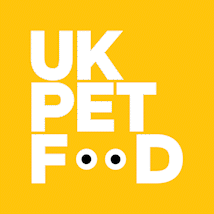Legislation
The manufacture of pet food in the UK is highly regulated, with more than 50 pieces of legislation governing the manufacture of pet food.
Foods for all animals are governed by the same legislation and, as farm animals form part of the human food chain, the laws are necessarily stringent. As pet food is manufactured and distributed in the same way as human food, some legislation governing human food is equally applicable to pet food.
Pet food enjoys the additional legal protection of the law which was designed to safeguard raw materials destined for the human food chain, from which the pet food industry also sources its raw materials. Examples of this include the laws restricting the residue levels of veterinary substances in meat and those of pesticides in cereal products.
Pet food production is highly regulated in the UK to ensure that it is of utmost safety, hygiene and quality. This is illustrated in our sections dedicated to pet food manufacturing and codes of practice for pet food manufacturers.
FEDIAF Codes & Guidelines
Pet food nutritional guidelines for manufacturers in the UK are produced by FEDIAF (the European Pet Food Industry). These guidelines (also known as Codes) detail the nutritional needs of cats and dogs at varying life stages. They are regularly updated to include the latest nutritional research.





